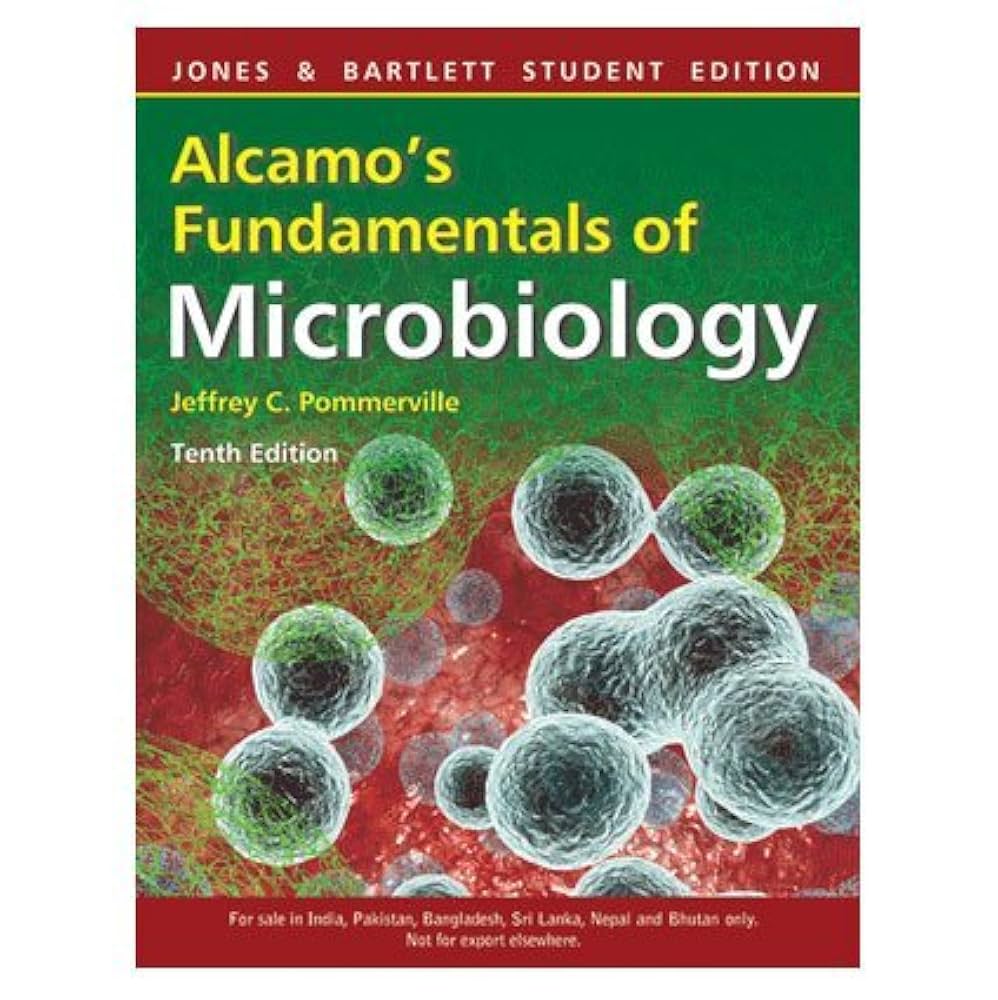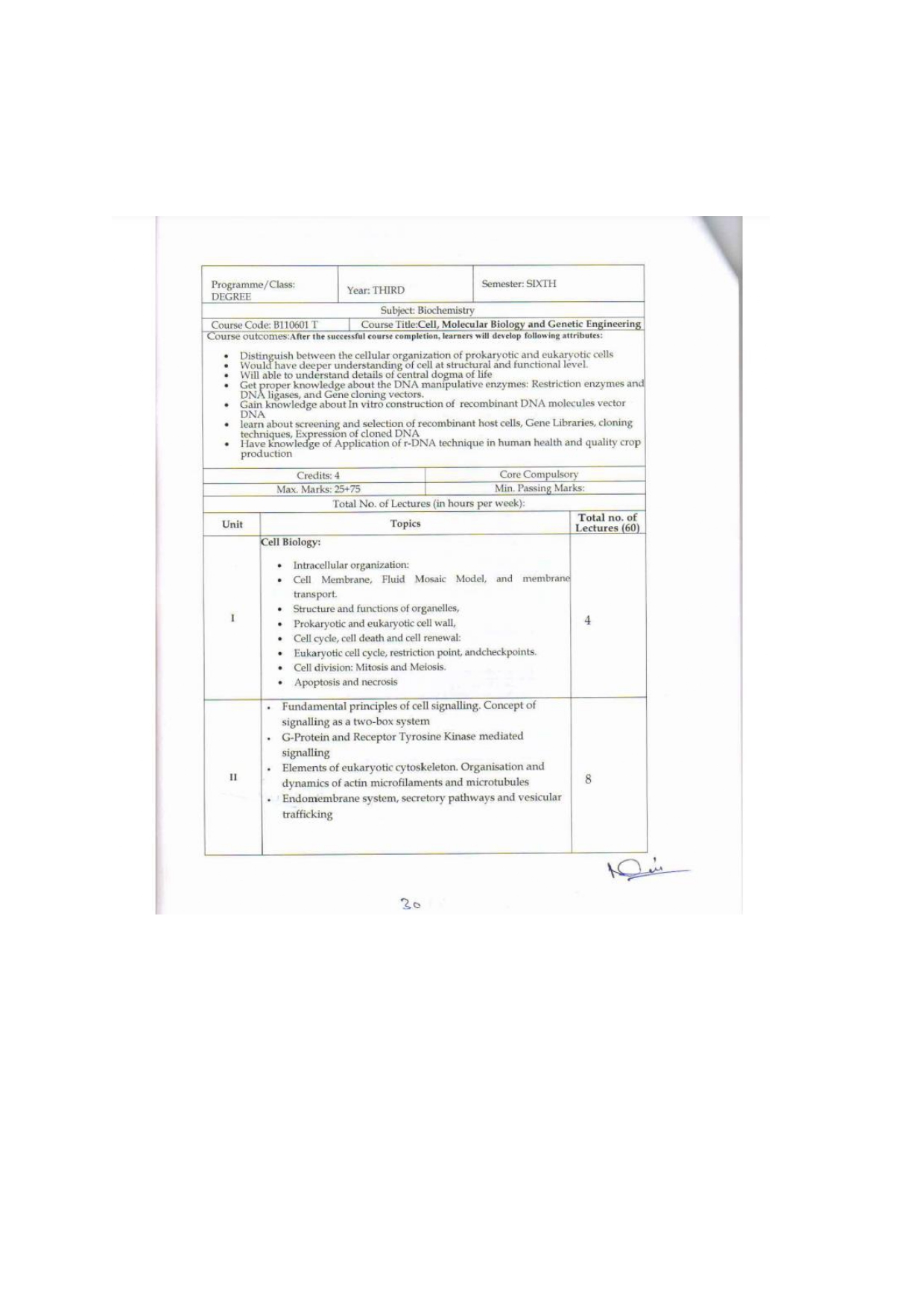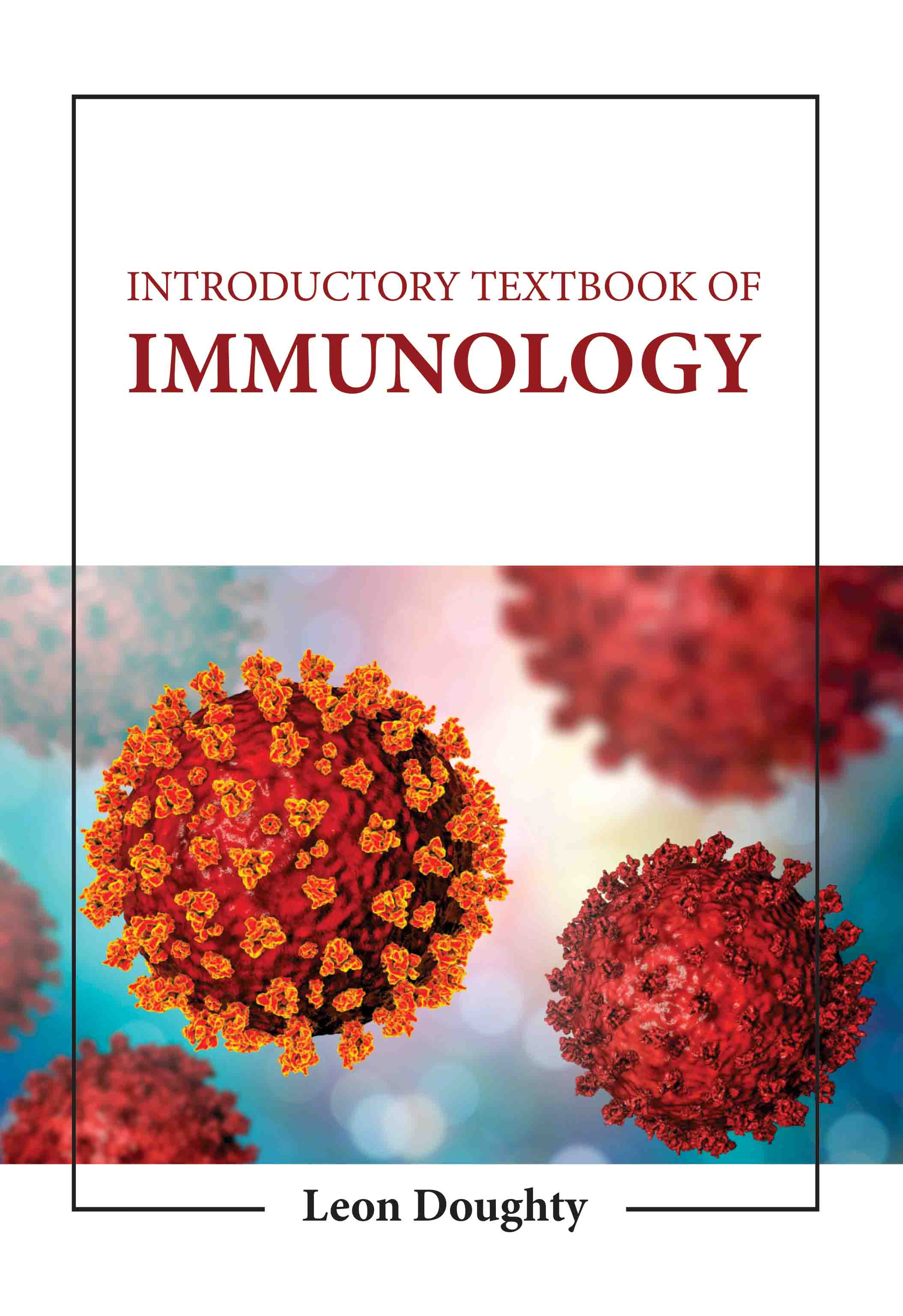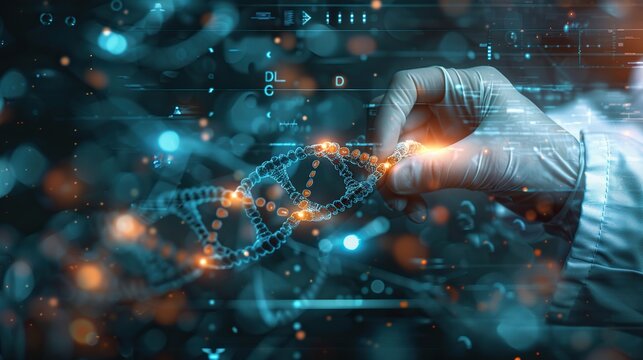
|
Programme/Class: DEGREE |
Year: THIRD |
Semester: FIFTH |
||||
|
Subject: Biochemistry |
||||||
|
Course Code: B110502 T |
Course Title Fundamentals of Microbiology |
|||||
|
Course outcomes:After the successful course completion, learners will develop following attributes · Know the basics of microbiology · Have knowledge of the general classification of microbes · understand basics of Control of Microorganisms · Study microbes in extreme environments and microbial interactions · Know the basics of recombination in Prokaryotes · Food & Industrial Microbiology · Basics of virology |
||||||
|
Credits: 4 |
Core Compulsory |
|||||
|
Max. Marks: 25+75 |
Min. Passing Marks: |
|||||
|
Total No. of Lectures (in hours per week): |
||||||
|
Unit |
Topics |
No. of Lectures (60) |
||||
|
I |
· Spontaneous generation versus biogenesis · Contributions of Anton von Leeuwenhoek, Louis Pasteur, Robert Koch, Alexander Fleming · Various forms of microorganisms (bacteria, fungi, viruses, protozoa, PPLOs) |
4 |
||||
|
II |
Classification of microbiology · Nutritional classification of microorganisms · Nature of the microbial cell surface · Gram positive and Gram negative bacteria · Growth curve |
8 |
||||
|
III |
· Physical agents (Autoclave, Hot air oven, Laminar airflow and membrane filter.) · Chemical agents (Alcohol, Halogens and Gaseous agents antibiotics), Radiation Methods (UV rays) |
8 |
||||
|
IV |
Pathogenicity of Microorganisms and Antimicrobial Chemotherapy · Introduction to pathogenic microbes, Bacteria, Viruses, Algae, protozoa and fungi · General Characteristics of antimicrobial drugs · determining the level of microbial activity · dilution susceptibility test and disc diffusion test · Range of activity and mechanism of action of penicillin, vancomycin and tetracycline. |
8 |
||||
|
V |
Microbes in extreme environments and microbial interactions · The thermophiles alkalophiles, acidophiles · symbiosis and antibiosis among microbial population · N2 fixing microbes in agriculture and forestry. |
8 |
||||
- Teacher: Annika Singh
- Teacher: Vinod Kumar Verma




